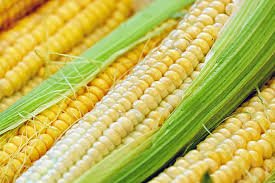
Corn is not only good for taste but also for the body:
Corn, also known as maize, is a staple food that has been cultivated for thousands of years. Beyond its delightful taste and versatility in various cuisines, corn offers an impressive array of nutritional benefits. This article explores the myriad advantages of incorporating corn into your diet, from its rich nutrient profile to its potential health benefits.
A Rich Source of Essential Nutrients

Corn is packed with essential nutrients that are vital for overall health. One cup of cooked corn (about 154 grams) contains:
- Calories: 143
- Protein: 5.4 grams
- Fat: 2.2 grams
- Carbohydrates: 31 grams
- Fiber: 3.6 grams
- Vitamin C: 17% of the Daily Value (DV)
- Vitamin B6: 10% of the DV
- Folate: 19% of the DV
- Magnesium: 11% of the DV
- Potassium: 10% of the DV
Corn is also a good source of antioxidants like lutein and zeaxanthin, which are crucial for eye health.
High Fiber Content
One of the standout features of corn is its high fiber content. Consuming fiber-rich foods like corn can also help manage weight by promoting a feeling of fullness, reducing overall calorie intake.
Supports Eye Health
Corn is rich in carotenoids, particularly lutein and zeaxanthin, which are powerful antioxidants. These compounds are known to reduce the risk of cataracts and age-related macular degeneration, two common eye conditions. Regular consumption of corn can help maintain good vision and protect against these eye health issues.
Provides Energy
Corn is an excellent source of complex carbohydrates, which are the body’s primary source of energy. Unlike simple carbohydrates that cause a rapid spike and subsequent crash in blood sugar levels, complex carbohydrates provide sustained energy. This makes corn an ideal food for maintaining energy levels throughout the day.
Promotes Heart Health
Corn contains a significant amount of folate, a B-vitamin that plays a crucial role in heart health. Folate helps lower homocysteine levels in the blood, a compound that is associated with an increased risk of heart disease. Additionally, the potassium content in corn helps regulate blood pressure, further supporting cardiovascular health.
Gluten-Free Option
For individuals with celiac disease or gluten sensitivity, corn is a fantastic gluten-free grain alternative. It can be used in various forms, such as cornmeal, corn flour, and corn tortillas, allowing those with gluten restrictions to enjoy a variety of dishes without adverse effects.
Rich in Antioxidants
Corn is particularly high in phenolic compounds, which have been shown to have antioxidant properties. These antioxidants can help reduce the risk of chronic diseases such as heart disease, diabetes, and certain cancers.
Supports Weight Management
The fiber content in corn not only aids digestion but also helps in weight management. High-fiber foods take longer to digest, which helps you feel full for longer periods. This can reduce the likelihood of overeating and assist in maintaining a healthy weight.
Enhances Skin Health
Corn is a good source of vitamin C, an essential nutrient for skin health. Vitamin C is involved in the production of collagen, a protein that helps keep the skin firm and youthful. Moreover, the antioxidants in corn can help protect the skin from damage caused by free radicals, contributing to a healthy, glowing complexion.

Versatility in the Kitchen
- Fresh Corn: Perfect for boiling, grilling, or adding to salads.
- Cornmeal: Used to make cornbread, polenta, and other baked goods.
- Popcorn: A popular, healthy snack option.
- Corn Flour: Great for baking gluten-free products.
- Corn Syrup: Used as a sweetener in various recipes.
This versatility makes it easy to incorporate corn into your diet in numerous delicious ways.
Conclusion
Corn is much more than just a tasty addition to your meals. Its impressive nutritional profile, coupled with its potential health benefits, makes it a valuable food to include in a balanced diet. From supporting eye and heart health to aiding digestion and weight management, corn offers a wide range of advantages that contribute to overall well-being. So, next time you enjoy a serving of corn, remember that you’re not only indulging in a delightful flavor but also nourishing your body with essential nutrients.

